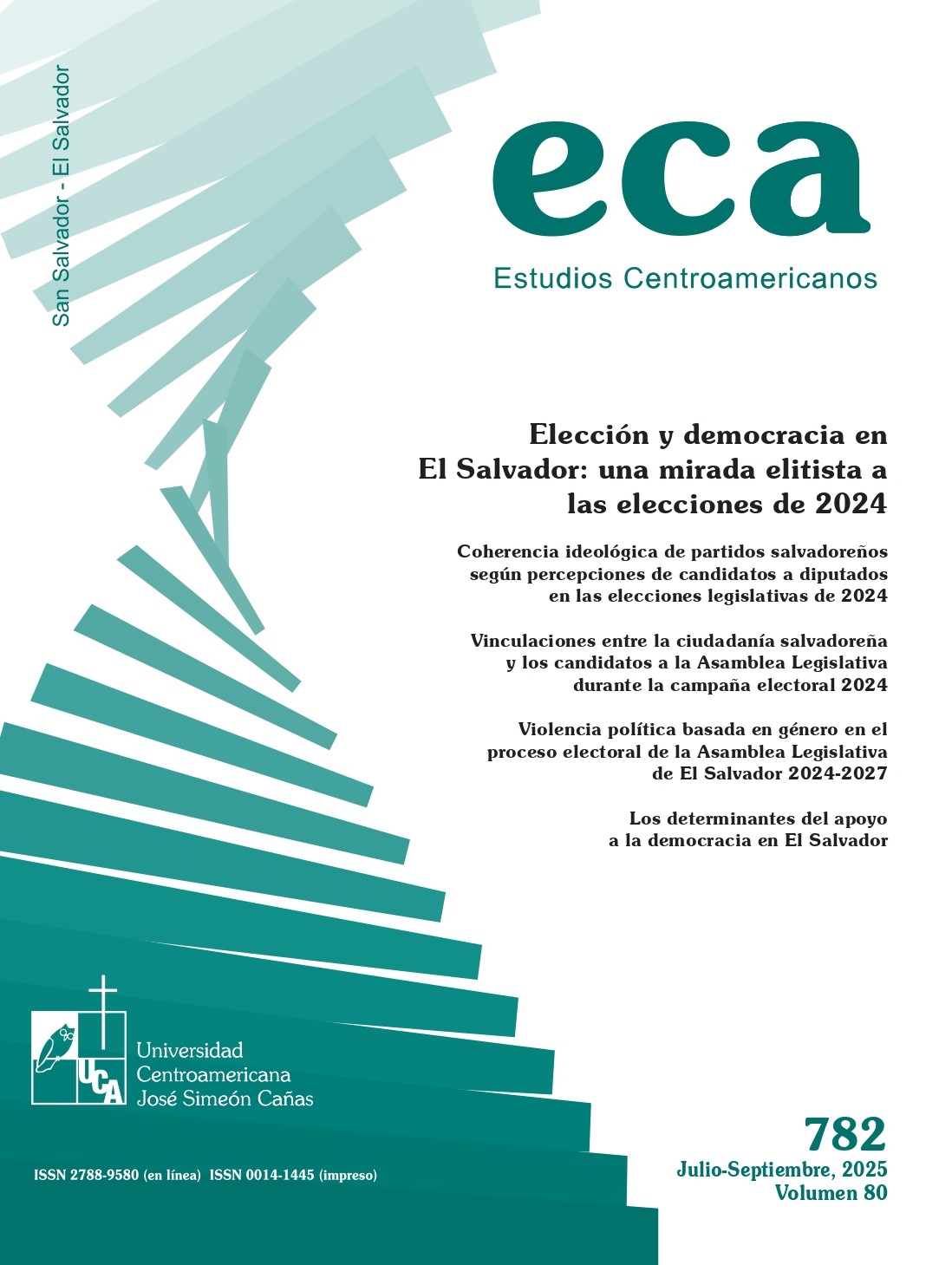Abstract
Central America is plagued with poverty, corruption, weak institutions, and illegitimate states. Experts tell us that negative views of political outcomes should invariably produce negative evaluations of democracy as a political regime. This negative image would inevitably generate dissatisfaction and disaffection. These, in turn, under extreme conditions, could lead to coups d'état, because unscrupulous politicians continually scan the environment to detect potential opportunities to reverse democratic processes. This view of the relationship between policy outcomes and citizen support for democracy predicts a unidirectional and inversely proportional movement between these two constructs. However, there is sufficient evidence showing that support for democracy has shown substantial variations in directions opposite to those expected. Increases in support for democracy have been verified in contexts of high levels of corruption, institutional inefficiency, and poverty. We show in this article that the determinants of support for democracy are not structural, nor do they depend on institutional outcomes. The data analyzed between 2004 and 2023 shows that variations may be merely temporary, depending on the assessment of the executive branch's work.
References
Acemoglu, D. y Robinson, J. A. (2006). Economic Origins of Dictatorship and Democracy. Cambridge University Press.
Bellucci, P., Memoli, V. y Sanders, D. (2012). The determinants of democracy satisfaction in Europe. En D. Sanders, P. Magalhães y Tóka, G. (Eds.), Citizens and the European Polity: Mass Attitudes Towards the European and National Polities (pp. 9-28). Oxford University Press.
Boix, C. (2003). Democracy and Redistribution. Cambridge University Press.
Booth, J. A. y Seligson, M. A. (2009). The Legitimacy Puzzle in Latin America: Political Support and Democracy in Eight Nations. Cambridge University Press.
Carlin, R. E. (2006). The socioeconomic roots of support for democracy and the quality in Latin America. Revista de Ciencia Política (Santiago), 26(1), 48-66. https://www.scielo.cl/scielo.php?script=sci_arttext&pid=S0718-090X2006000100003
Claassen, C. (2020). Does public support help democracy survive? American Journal of Political Science, 64(1), 118-134. https://doi.org/10.1111/ajps.12452
Cohen, M. J., Lupu, N. y Zechmeister, E. J. (eds.). (2017). The Political Culture of Democracy in The Americas, 2016/17: A Comparative Study of Democracy and Governance. USAID. https://www.vanderbilt.edu/lapop/ab2016/AB2016-17_Comparative_Report_English_V2_FINAL_090117_W.pdf
Coleman, K. M., Cruz, J. M. y Moore, P. J. (1996). Retos para consolidar la democracia en El Salvador. ECA: Estudios Centroamericanos, 51(571-572), 415-440. https://doi.org/10.51378/eca.v51i571-572.6705
Consejo Nacional de Rectores y Programa Estado de la Nación. (1995). Informe Estado de La Nación, 1995. Programa Estado de la Nación-Consejo Nacional de Rectores.
Consejo Nacional de Rectores y Programa Estado de la Nación. (2022). Informe Estado de La Nación, 2022. Programa Estado de la Nación-Consejo Nacional de Rectores.
Hirschman, A. O.(1970). Exit, Voice, and Loyalty: Responses to Decline in Firms, Organizations, and States. Harvard University Press.
Lijphart, A. (1977). Democracy in Plural Societies: A Comparative Exploration. Yale University Press.
Morales Quiroga, M. (2009). Corrupción y democracia: América Latina en perspectiva comparada. Gestión y Política Pública, 18(2), 205-252. https://www.scielo.org.mx/scielo.php?script=sci_arttext&pid=S1405-10792009000200001
Munck, G. L. (2015). Building Democracy... Which Democracy? Ideology and Models of Democracy in Post-Transition Latin America. Government and Opposition, 50(3), 364-393. https://doi.org/10.1017/gov.2015.2
O'Donnell, G. y Schmitter, P. (1986). Transitions from Authoritarian Rule: Tentative Conclusions about Uncertain Democracies. Johns Hopkins University Press.
Pignataro, A., Treminio, I. y Chavarría-Mora, E. (2021). Democracia, apoyo ciudadano y nuevas generaciones frente al retroceso democrático en Centroamérica. Anuario de Estudios Centroamericanos, 47, 1-30. https://doi.org/10.15517/aeca.v47i0.49734
Sánchez, Ó. (2008, 28 de junio). Guatemala's Party Universe: A Case Study in Underinstitutionalization. Latin American Politics and Society, 50(1), 123-151. https://doi.org/10.1111/j.1548-2456.2008.00006.x
Weffort, F. (1992). Novas democracias: Que democracias? Lua Nova: Revista de Cultura e Política, (27), 5-30. https://doi.org/10.1590/S0102-64451992000300002

This work is licensed under a Creative Commons Attribution-NonCommercial-NoDerivatives 4.0 International License.
Copyright (c) 2025 Roody Reserve






